
For the first time since 1969, Charles Dickens' beloved book David Copperfield has been adapted as a live-action movie. This new version comes from master British satirist Armando Iannucci (The Thick Of It), and, as per the book, is narrated by David himself, who takes us on a guided tour through his remarkable life, from birth to childhood and beyond.
Slumdog Millionaire's Dev Patel makes for a winning, endearing David, and the excellent supporting cast fills out a typically Dickensian troupe of eccentrics, dreamers and grotesques. Tilda Swinton is David's eccentric aunt Betsey Trotwood, Hugh Laurie is her companion Mr. Dick and Ben Whishaw is the unctuous Uriah Heep.
Dickens drew a lot of the material in the novel from his own life, interweaving a complex tapestry of fact and fiction. He described the book as his "favourite child", and there's been a lot of pressure on Iannucci's adaptation to get it right. Fortunately, critics have been effusive in their praise, lauding the performances and the director's faithfulness to Dickens' farcical, freewheeling comedy.
However, there are some important changes and omissions when it comes to the movie adaptation. If you haven't yet seen it, be sure to come back later – if you have, take another stroll into the life of Mr. David Copperfield.
WARNING: SPOILERS AHEAD
1. Mr. Creakle's school
The movie begins with a wonderfully Dickensian flourish, as David gives a live reading of his book to an attentive audience. The author himself gave regular live readings of his classic works, and it's delightful to see that Iannucci has clearly done his research. However, the director goes one better by having David walk through the backdrop into the scene of his own birth, a brilliantly surreal flourish.
We chart young David's idyllic existence with his mother and devoted housekeeper Peggotty (Daisy May Cooper). However, David's mum soon marries the cruel Mr. Murdstone (Darren Boyd), who beats our young hero and has him dispatched to work in a bottle factory. David grows up in harsh circumstances before he's later informed by Murdstone and his cruel sister (Gwendoline Christie) that his mother has died in his absence.
This sequence of events omits a big section from the novel, in which David is first sent to Salem School, overseen by violent headmaster Mr. Creakle, where he comes into contact with key characters Steerforth (played in the movie by Aneurin Barnard) and Tommy Traddles. By omitting this from the movie, Iannucci is able to compress the novel's narrative and get to the emergence of the reveal of the adolescent David more quickly.
2. Tommy Traddles
The aforementioned Tommy Traddles is one of David's most important allies in the book; however, he's nowhere to be found in the movie.
Traddles is introduced as a somewhat unassuming character, who later crosses paths with David when the title character becomes a proctor in London. Having re-established their acquaintance, the two become even firmer friends than before. In the book, Traddles pursues his dream of becoming a judge and marrying his love, Sophy; he's also mistrustful of Steerforth (important in underlining the young David's naivete) and instrumental in the climactic unveiling of Uriah Heep as a villain.
In the film, however, Uriah is exposed by David's friend (and eventual wife) Agnes who, it's revealed, has been keeping logs of Heep's fraudulent activities. The obsequious clerk has inveigled his way into the practice of Agnes' father Mr. Wickfield, encouraging his incipient alcoholism, and eventually becoming a partner. By removing Traddles, director Iannucci allows Agnes (played in the movie by Rosalind Eleazar) to become a more forthright, purposeful character in the narrative, as opposed to just David's love interest.
3. Rosa Dartle
One of the book's most unpleasant characters is Steerforth's cousin Rosa Dartle, who is seen continually hovering around his snobbish mother. Dartle is the worst kind of insinuating presence, and David eventually realises her malevolent intent, although there is context for this. It turns out she has long been in love with Steerforth, and as a result of these unrequited desires, she channels her jealousy into spite.
Dickens also brilliantly describes the unpleasant spectre of a scar above Clara's lip, which flushes with colour during moments of rage. She sustained this during a childhood altercation with Steerforth. In the movie, Dartle doesn't feature at all, although the lip scar is translated onto the character of Steerforth's mother (Nikki Amuka-Bird).
4. Uriah Heep's schemes
At the climax of the book, Uriah Heep isn't done when he's exposed for his fraudulent activities with Mr. Wickfield (who, in the film, is played by Benedict Wong). Sometime later, he's charged with attempting to defraud the Bank of England, leading to one final confrontation with David in which his two-faced nature is stated for the final time.
At this point, Uriah's hatred towards David becomes clearer than ever, driven as it is by a sense of class divide (hence Heep's insistence of his "'umble" status). However, at the moment of David's departure, the creepy Heep again turns coat and reverts to his fawning, humble persona. In a further twist, the presiding magistrate in Uriah's case turns out to be none other than Mr. Creakle himself.
Although this scene isn't present in Iannucci's movie, elements of it remain in the final, dramatic confrontation; when David punches Uriah to the floor, the machiavellian clerk, rising to his feet, again comes over all sycophantic in an apparent act of contrition. Of course, we know the character is false to the core, although we also realise by this stage that Heep has been as much shaped by his circumstances as David has. The difference is, David has integrity; Uriah has none at all.
5. Mr. Barkis
Cart driver Mr. Barkis is only a minor character in the book, but he eventually becomes Peggotty's love interest and husband. Although he's revealed to be a Scrooge-style miser, he eventually bequeaths thousands of pounds to his wife. This helps flesh out the role of David's loyal and loving housekeeper, but Barkis isn't present in the movie.
6. Dora's marriage to David
In Dickens' novel, David both romances and marries the tremulous, timid Dora Spenlow. The union turns out to be incompatible and somewhat unhappy, and Dora, known as the "child-wife", eventually passes away from illness following a miscarriage, allowing David to realise that his true love was Agnes all along.
Although Dora is present and correct in the movie (played by Morfydd Clark), she doesn't marry David, nor does she die. In fact, Iannucci's adaptation gives her more purpose, allowing Dora to exit David's life of her own volition when she perceives that she doesn't belong. This has literal and figurative overtones – she realises she doesn't want to become his wife, and also prevents herself being included in the narrative that David is authoring.
Iannucci transforms a somewhat one-dimensional character in the novel into someone who can make her own decisions, a nice contemporary touch in the midst of a period drama.
7. Steerforth's snobbery
One of the most poignant aspects of the novel is David's realisation that his close friend Steerforth isn't all he seems. The book is written from the perspective of an older man remembering his younger, more naive self – hence, Steerforth's behaviour is passed off as boyish and rambunctious, even though the reader understands that there are darker impulses going on.
The first indication of this comes during the early sequence at Salem's school, when Steerforth gets teacher Mr. Mell fired. It transpires that Mell's mother lives in a workhouse and he supports her with his wages; when Steerforth learns this, he passes the news onto Creakle, who has Mell removed from the school.
As filtered through the haze of David's childhood memories, it appears that Steerforth has done no wrong. However, the unveiling of Steerforth's deeply unpleasant mother, who has helped shape her son's worldview, and Steerforth's eventual eloping with Emily, fiancee of Ham Peggotty, confirms that he is a deeply troubled individual.
Although Iannucci's film preserves the Steerforth/Emily storyline (Aimee Kelly plays the unfortunate girl), the firing of Mr. Mell has been removed (as indeed has the whole of the Salem school subplot). However, aspects of it remain: in the film, it is the perpetually-in-debt Mr. Micawber (Peter Capaldi) who suffers at the hands of Steerforth, when he arrives as a tutor to teach a class of students, of which David is a part.
There is an added sense of tragedy in the film's depiction of events: Micawber and Copperfield have been close friends for several years; in fact, the former took David in as a lodger when the boy arrived in London all alone. They did, however, part ways, when bailiffs arrived to repossess Micawber's things, throwing him out of the house in the process. It's Steerforth's knowledge of this existing friendship, and Micawber's money troubles, that helps propel the poor man's dismissal.
Can't wait to see the film again? Then click here to book your tickets for The Personal History of David Copperfield. Don't forget to tweet us your responses to the movie @Cineworld.

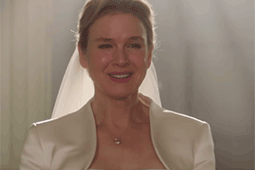
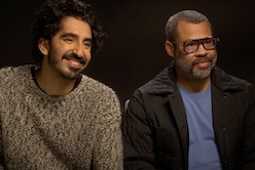
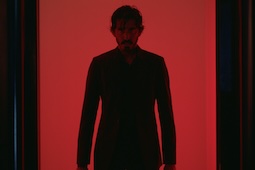
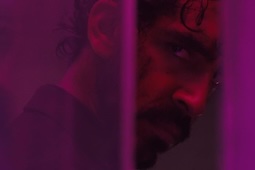
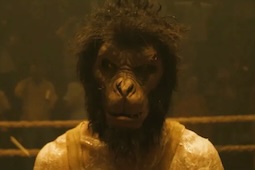
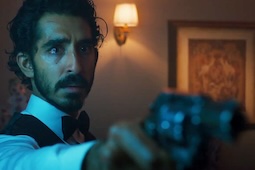
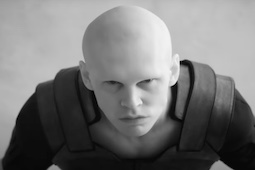
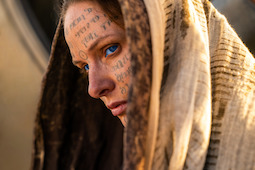
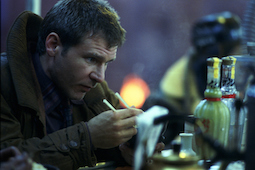
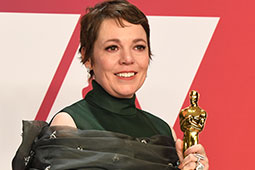
.jpg)
.jpg)

.jpg)
.png)



